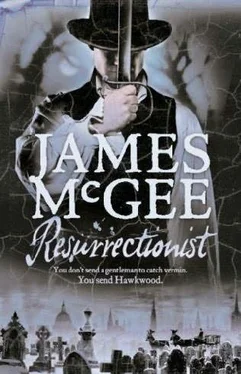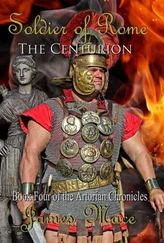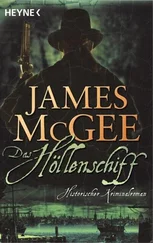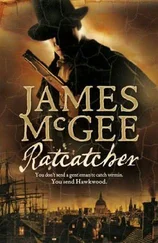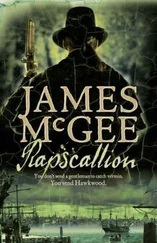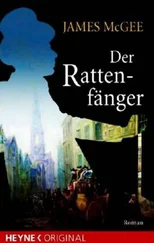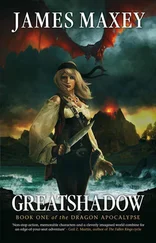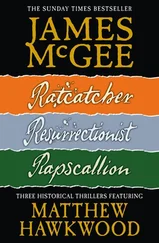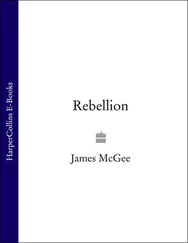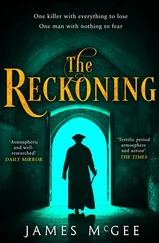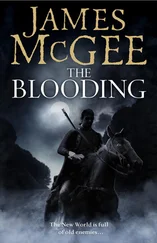James McGee - Resurrectionist
Здесь есть возможность читать онлайн «James McGee - Resurrectionist» — ознакомительный отрывок электронной книги совершенно бесплатно, а после прочтения отрывка купить полную версию. В некоторых случаях можно слушать аудио, скачать через торрент в формате fb2 и присутствует краткое содержание. Жанр: Исторический детектив, на английском языке. Описание произведения, (предисловие) а так же отзывы посетителей доступны на портале библиотеки ЛибКат.
- Название:Resurrectionist
- Автор:
- Жанр:
- Год:неизвестен
- ISBN:нет данных
- Рейтинг книги:4 / 5. Голосов: 1
-
Избранное:Добавить в избранное
- Отзывы:
-
Ваша оценка:
- 80
- 1
- 2
- 3
- 4
- 5
Resurrectionist: краткое содержание, описание и аннотация
Предлагаем к чтению аннотацию, описание, краткое содержание или предисловие (зависит от того, что написал сам автор книги «Resurrectionist»). Если вы не нашли необходимую информацию о книге — напишите в комментариях, мы постараемся отыскать её.
Resurrectionist — читать онлайн ознакомительный отрывок
Ниже представлен текст книги, разбитый по страницам. Система сохранения места последней прочитанной страницы, позволяет с удобством читать онлайн бесплатно книгу «Resurrectionist», без необходимости каждый раз заново искать на чём Вы остановились. Поставьте закладку, и сможете в любой момент перейти на страницу, на которой закончили чтение.
Интервал:
Закладка:
“Don’t be a fool,” Hawkwood warned. “I’m a police officer.”
The attacker’s head lifted. Above the scarf, his eyes widened.
“Not what you expected, was it, cully?” Hawkwood said. Without diverting his gaze from the masked figure, Hawkwood tossed the tipstaff into his left hand. The attacker’s eyes followed the flight of the baton. Then his attention flicked back to Hawkwood. Rain dripped from the peak of his cap and ran down the blade held low in his fist. The moonlight reflected the doubt in his eyes.
“Your choice, cully,” Hawkwood said calmly, and waited.
And then he saw the subtle shift in stance, the transference of weight from one foot to the other, and with it the unmistakable tightening across the knuckles of the hand that gripped the cleaver. He saw the white crescents in the attacker’s eyes shrivel and darken, and thought wearily, Oh, Christ.
But the attack, when it came, was clumsy. The new man was not as light on his feet as his companion and not as limber and in order to deliver a blow he first had to draw back the cleaver.
In that second of indecision, Hawkwood, unlike his opponent, did not hesitate. He feinted the baton towards the hand holding the blade. Instinctively the attacker lifted his arm to ward off the threat, realizing his mistake as soon as he had done so. Hawkwood saw his opening and launched his boot towards the exposed belly. His kick drove the air from the attacker’s lungs, slamming the man backwards.
In the drenching darkness, Hawkwood’s attacker had failed to see how close he was to the waist-high wooden fence at the edge of the bridge. Had it not been for the rain it was possible he might have recovered his footing, but in places the uneven cobblestones had become as slippery as winter ice.
Almost lifted off his feet by the force of Hawkwood’s kick, the attacker staggered back against the wooden slats, heels scrabbling for traction. Arms flailing, he made a desperate attempt to stay upright. Gravity, however, had the upper hand. The rotten staves splintered under his weight and the blade wielder toppled over the side of the bridge, the cry of terror rising from his throat as he tumbled into the void.
Hawkwood approached the shattered railing. Returning the tipstaff to the pocket of his coat, he peered cautiously over the edge. The smell that rose to meet him was foul beyond belief. He drew back sharply, fighting the urge to retch. Forcing himself to take a deep breath — a difficult feat given that the appalling stench seemed to be devouring the air around him — he peered once more into the abyss. Even in the shadows cast by the surrounding hovels, he could tell that the water in the Ditch, swollen by the rain, had risen considerably. It was only a few feet below the curved underside of the bridge and was almost solid with filth. It was like looking down into a trough of black treacle. He could hear the rain striking the surface. It sounded like musket balls tearing into flesh.
There was no sign of his attacker. A bundle of what looked like matted fur close to the opposite bank drew his attention; the carcass of some long-dead animal, a dog, he guessed. Within the grey tangle he could make out a pale curve of bone, part of a ribcage. He caught a glimpse of a small, sleek black pelt scampering along a piece of driftwood, followed by the ripple of a long hairless tail, but it was gone in an instant.
He heard it then, a faint snuffling grunt, the sort a pig might make grubbing for roots. He realized it was coming from directly below him, close in to the bridge’s brick supports. Mindful of the precarious state of the rail and trying not to inhale too deeply, he leaned over and searched for the source of the sound.
He spotted movement down in the filth; a pale, spider-like shape clawing desperately for purchase against the worn brickwork. It took Hawkwood a second to realize he was looking at a human hand and that the area of shadow surrounding it was the partially submerged body of his attacker.
As Hawkwood watched, the attacker made another vain grab for freedom. The oily black crust broke apart, releasing the man’s upper arm, enabling him to turn his head. But the release was temporary. His neckerchief had become dislodged, but the attacker’s face was unrecognizable beneath the mask of shit and mud. Only his eyes, white and wide with fear, were visible. His mouth was open but no sound emerged. Then, as quickly as it had relaxed its hold, the sticky effluence began to drag him under. In the blink of an eye he was gone, drawn into the black maw beneath the bridge as if the ground had opened and swallowed him whole.
Hawkwood straightened. He turned and walked over to where the first attacker was lying on the ground. Heedless of the wet, he gazed down at the dead man without sympathy. He looked around. There were no signs of life; no flicker of candlelight to indicate a curtain had been pulled aside, no cries of alarm, no running footsteps that might have suggested witnesses running to summon help. Nothing moved other than the rain, which continued its relentless fusillade against windowpane and tile. Ignoring the widening puddles, Hawkwood knelt and turned the body over. The lifeless eyes were dull and staring. The thin scarf that had concealed the attacker’s lower features had slipped. It was soaked with rain and stained black with blood. The face was not one that Hawkwood recognized. He switched his attention to the dead man’s clothing, moving through the pockets. No help there either; they were empty. He rose to his feet, his eyes quartering the cobblestones. His gaze caught the gleam of steel. He walked over to the wall and picked up the hook, turning it in his hands, pondering its significance.
It was weighty and there was a simple beauty in its smooth curves. The handle ended in a T-shape, allowing the holder to grip the bar of the T in his palm so that the shaft of the hook emerged from the gap between his middle fingers. It was a remarkably effective tool as well as a fearsome weapon, and one he’d seen many times in the markets and slaughter yards of Smithfield, used by butchers and meat porters to drag animal carcasses on and off cutting slabs.
Hawkwood considered the implications. That there was a connection between his attackers and his visit to the Dog seemed glaringly obvious.
It was possible, he supposed, that they’d been no more than a couple of opportunists who’d spotted him in the taproom, seen him pay for his drink rather than receive it on credit, viewed him as an easy mark and, acting on impulse, followed him into the alley.
An alternative explanation was that they’d been villains he’d come up against before; men out for revenge. But that seemed doubtful, given that he hadn’t recognized either of them, certainly not the one lying at his feet. The one that had fallen prey to the Fleet’s uncharitable grip, he couldn’t be sure of, but he guessed it unlikely they’d met previously, a theory more or less confirmed by the shock in the man’s eyes when Hawkwood had identified himself as a police officer.
He looked down at the hook and remembered the cleaver. The choice of weapons was intriguing. They were tools of the meat trade. Poke a stick down a rat hole, he thought, and you were never sure what was going to come crawling out. Maybe his enquiries about Doyle had touched a raw nerve. He looked again at the body.
In the normal course of events, at odds of two to one and given the weapons they had brandished, it would have been their victim lying face down on the cobbles. Unluckily for them, they hadn’t expected to be confronted by a former officer in the Rifles who’d spent the last six months of his army career living rough in the Spanish mountains slaughtering Frenchmen. They’d paid for their mistake with their lives. Not that Hawkwood intended to lose any sleep over it. His attackers had dealt the hand. Unhappily for them, it had been Hawkwood holding the trump cards.
Читать дальшеИнтервал:
Закладка:
Похожие книги на «Resurrectionist»
Представляем Вашему вниманию похожие книги на «Resurrectionist» списком для выбора. Мы отобрали схожую по названию и смыслу литературу в надежде предоставить читателям больше вариантов отыскать новые, интересные, ещё непрочитанные произведения.
Обсуждение, отзывы о книге «Resurrectionist» и просто собственные мнения читателей. Оставьте ваши комментарии, напишите, что Вы думаете о произведении, его смысле или главных героях. Укажите что конкретно понравилось, а что нет, и почему Вы так считаете.
